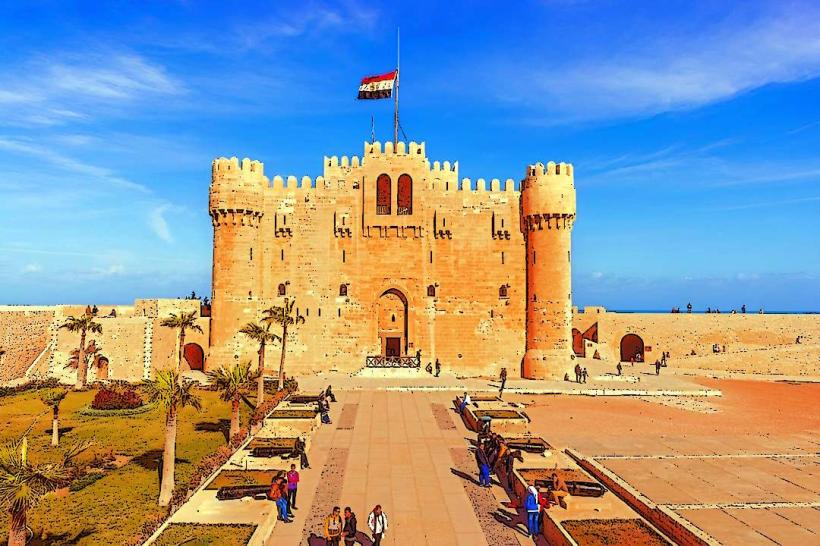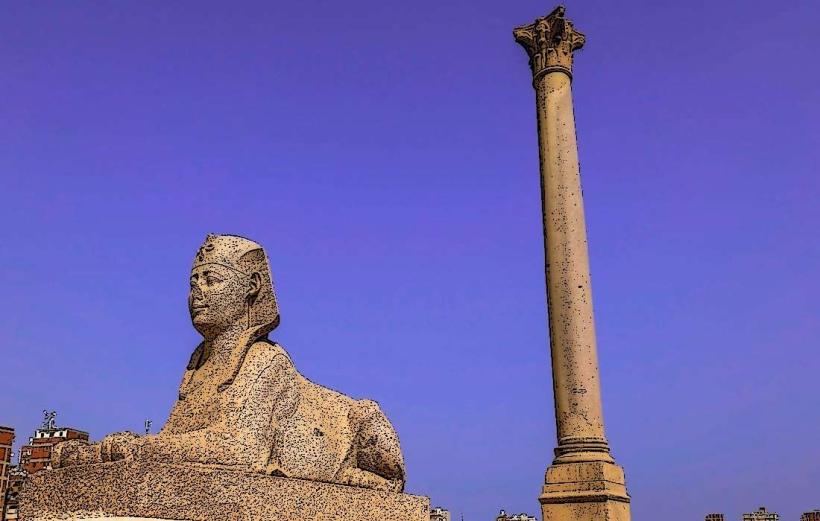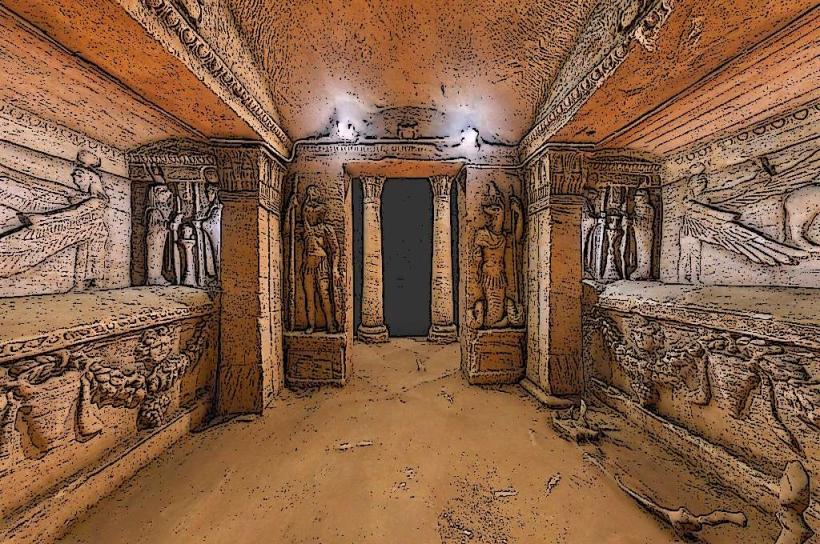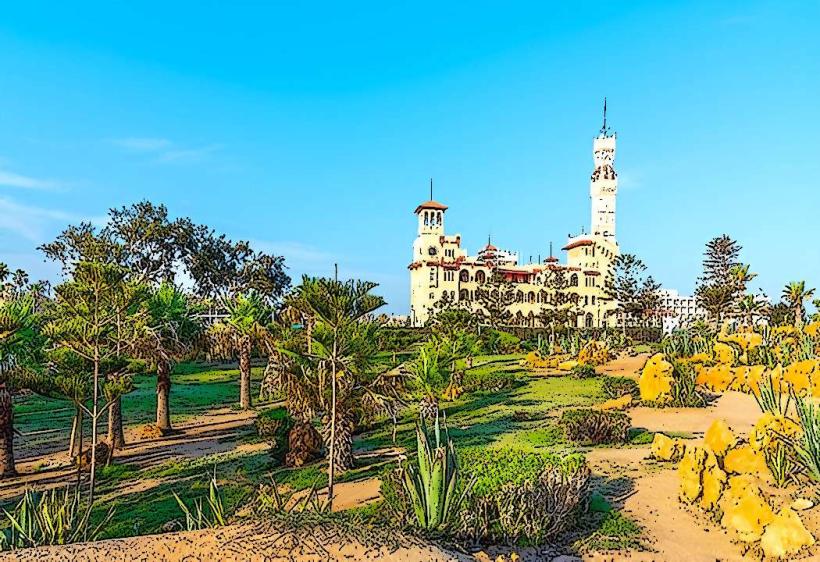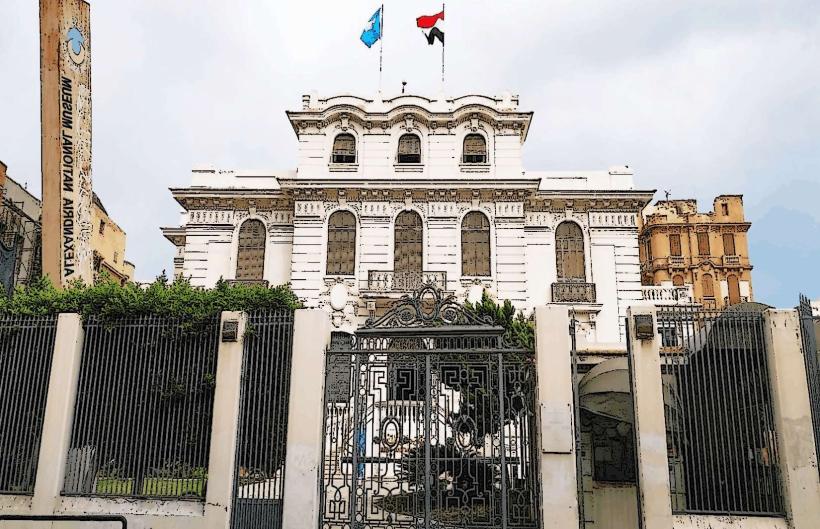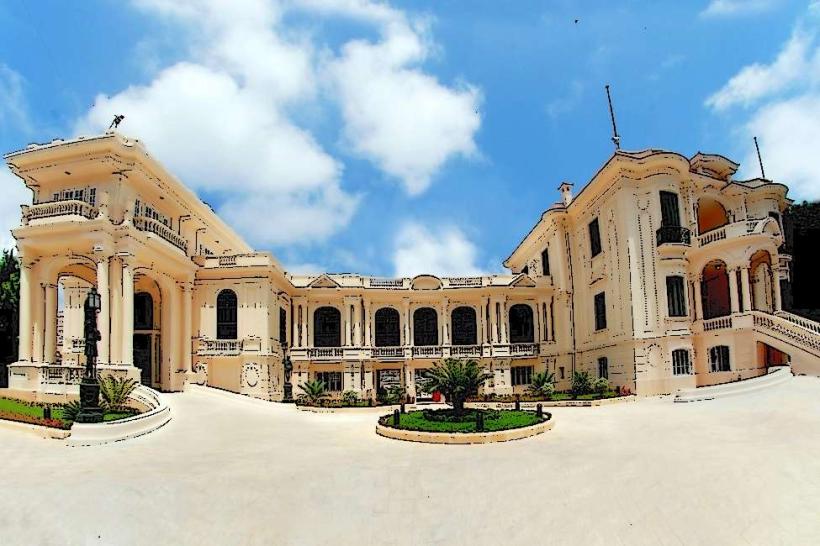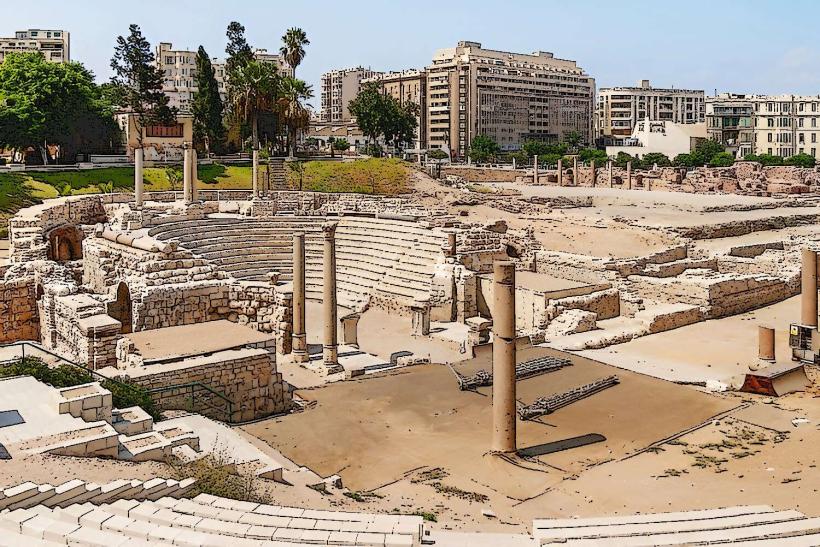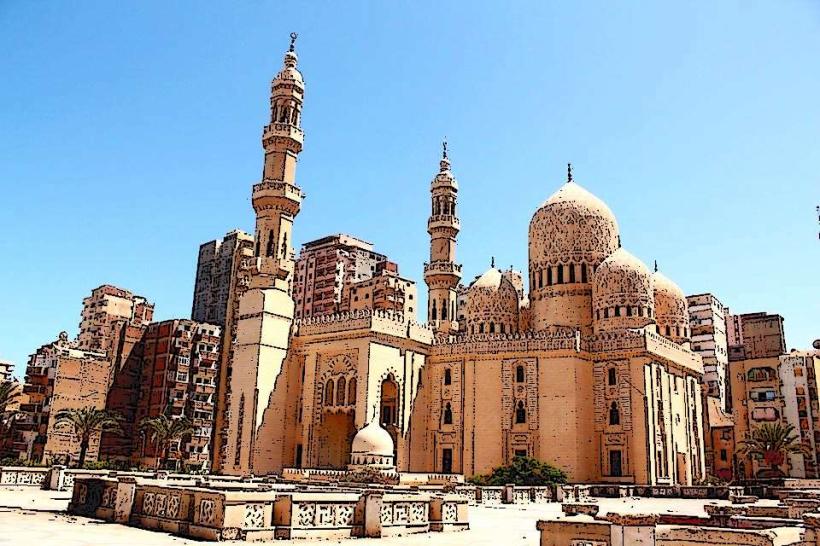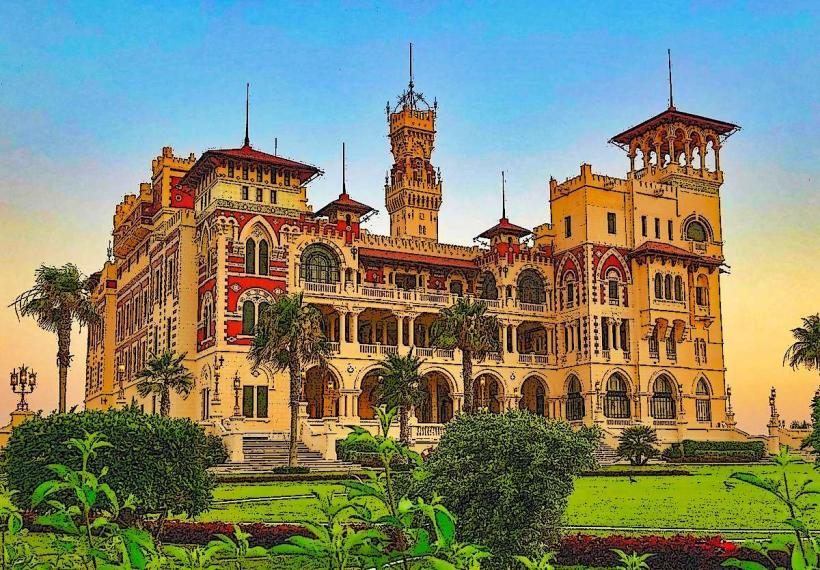Information
Landmark: Alexandria LibraryCity: Alexandria
Country: Egypt
Continent: Africa
Alexandria Library, Alexandria, Egypt, Africa
The Bibliotheca Alexandrina is a major library and cultural center located on the eastern harbor of Alexandria, Egypt. It is designed to commemorate the original Library of Alexandria, one of the largest and most significant libraries of the ancient world.
Visual Characteristics
The library's main building features a distinctive tilted, circular roof resembling a rising sun. Its exterior is clad in Aswan granite, with a rough, textured finish. The main reading room is a vast, open space with a high, vaulted ceiling. The complex also includes a planetarium, a science museum, and several smaller galleries.
Location & Access Logistics
The Bibliotheca Alexandrina is situated on the Corniche Road, approximately 1.5 kilometers east of the city center. Access is via the Corniche Road, with dedicated parking facilities available on-site. Public transport options include several city bus lines that stop near the library, and taxis are readily available throughout Alexandria.
Historical & Ecological Origin
The modern Bibliotheca Alexandrina was inaugurated in 2002, conceived as a revival of the ancient library. The architectural design was the result of an international competition won by the Norwegian firm Snøhetta. The site itself is historically significant, being near the location of the ancient library and the royal quarter of Alexandria.
Key Highlights & Activities
Visitors can explore the main reading room, which houses millions of books and digital resources. The complex offers permanent and temporary exhibitions in its museums and galleries. The planetarium hosts educational shows. Guided tours of the library's facilities are available.
Infrastructure & Amenities
Restrooms are located on each floor of the main building. Shaded areas are available within the library complex and surrounding plazas. Cell phone signal (4G/5G) is generally strong within the library. Food and beverage services are available at on-site cafes and restaurants.
Best Time to Visit
The best time of day for photography of the exterior is late afternoon, when the sunlight creates distinct shadows on the granite facade. The library is open year-round, with fewer crowds typically observed during weekdays outside of major Egyptian holidays.
Facts & Legends
The library's main reading room can hold an estimated 8 million books. The design incorporates a system for recycling rainwater to irrigate the surrounding gardens. A unique feature is the "Manuscript Museum," which displays rare books and documents.
Nearby Landmarks
- Bibliotheca Alexandrina Planetarium (0.1km North)
- Alexandria National Museum (1.2km West)
- Qaitbay Citadel (3.5km West)
- Roman Amphitheatre (1.8km West)
- Montaza Palace Gardens (7.0km East)

